Manas Spring Festival – Mosaic of Rustic Experience, Tradition and Culture
“Into the wild waking up to the sounds of peacock, expanse of tea gardens as far as eyes can see, spotting the largest mammal & one-horned rhino, embracing the simplicity & letting go off technology, a lot of merrymaking & sweet banters, food, fun & frolic” – Manas Spring Festival got us all hooked to the jewels of nature. 🙂 🙂
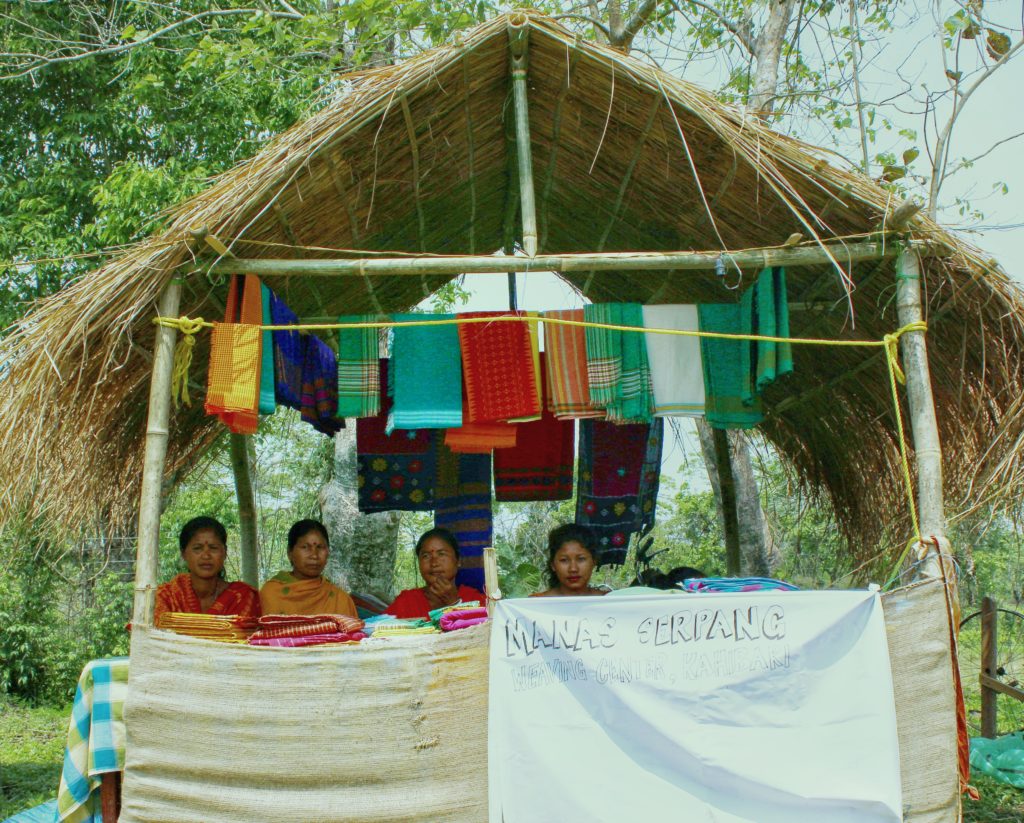
Traditional handlooms
In the sheer wilderness away from the chaos blossomed two days of pure rustic experience with Manas Spring Festival. It was organized by Indian Weaver’s Alliance in association with WWF on 7th and 8th April 2018. The Spring Festival was dedicated to helping the fringe village communities around the Manas National Park to create a sustainable living without impacting the nature and its rich resources.
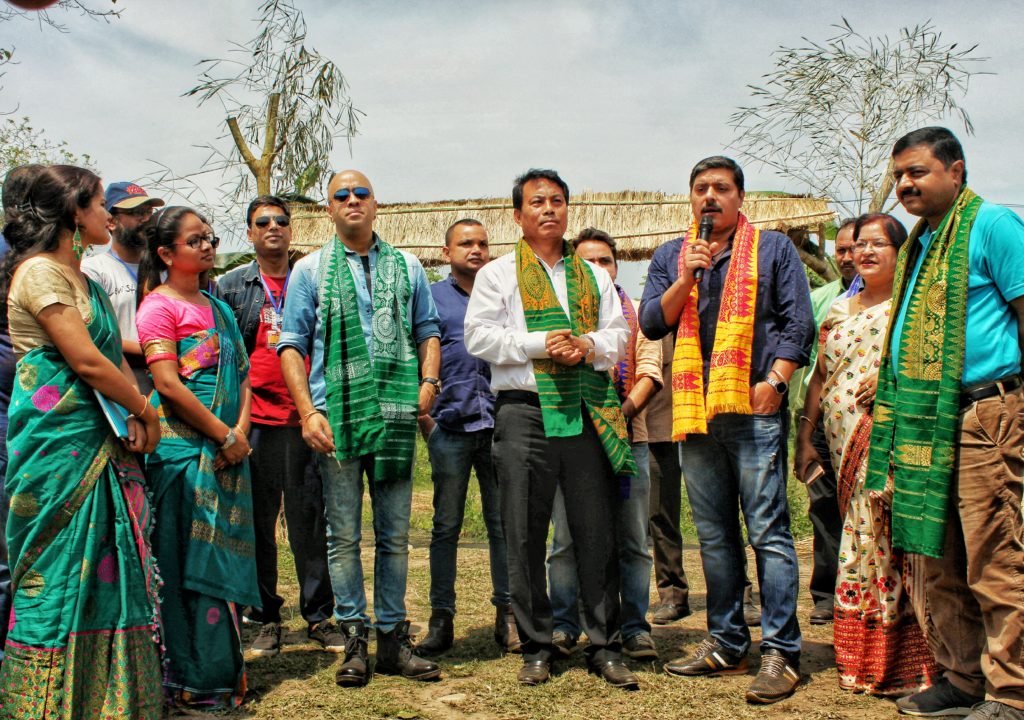
Inauguration of Manas Spring Festival by eminent personality Jai Baruah and celebrity chef Gautam Mehrishi
The villages around have constantly worked towards conservation of nature, resources and wildlife. In order to help the communities to grow and progress in a sustainable manner, the Manas Spring Festival was an effort towards showcasing culture, handloom and food of the Bodo Tribes. The Manas Spring Festival was a brainchild Food Sutra by Mitali along with all the surrounding village communities.
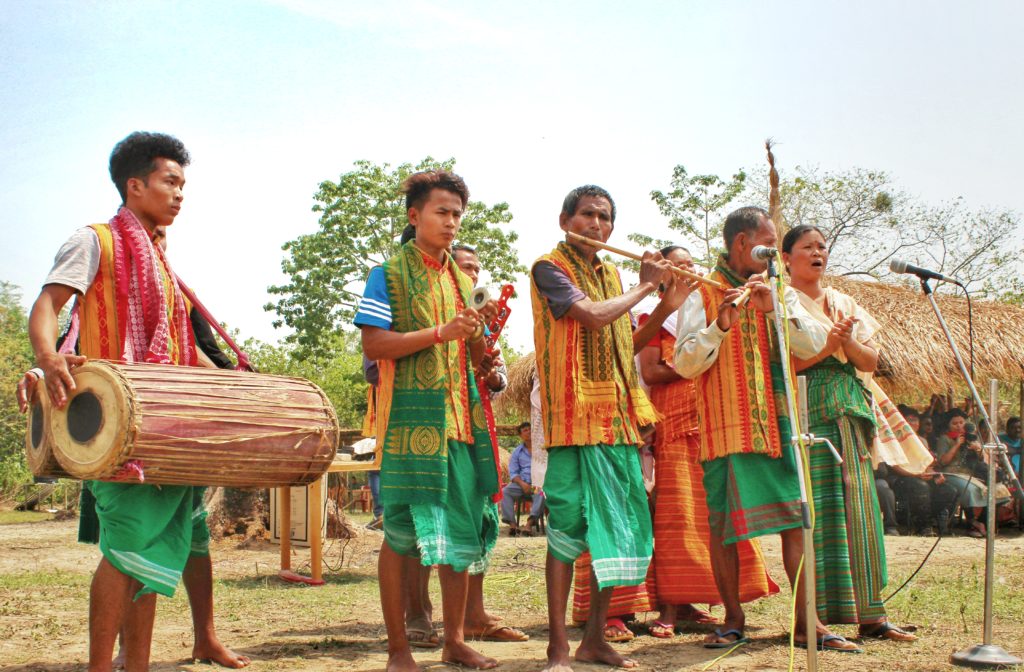
Such beautiful performances by Bodo Community
Table of Contents
A Festival Rightly Enjoyed – Culture, Food, Dance and Handloom
The festival beautifully represented the Bodo Culture through their vibrant handlooms, charismatic dance performances and delicious Ethnic delicacies. Manas National Park, a UNESCO Heritage site located in Assam is surrounded by villages mostly inhabited by Bodo community. They rely mostly on organic practices like farming, fishing, poultry, agriculture and handlooms for their livelihood.
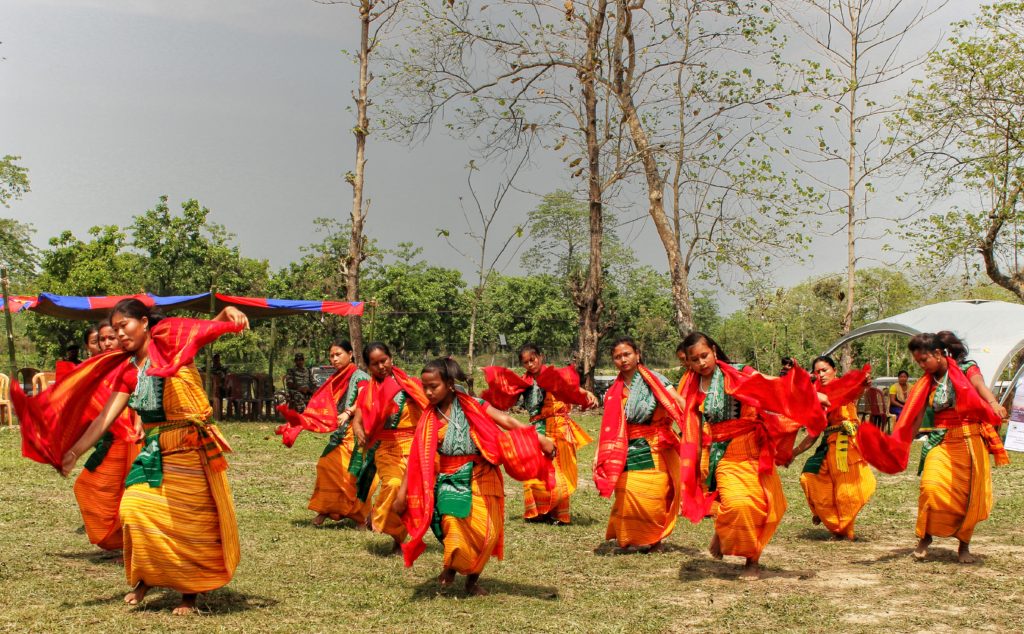
Traditional Bagurumba Dance
Dance and Performances
No festival is complete without swinging to the tunes of folk dance and music. As a part of the cultural program, there was a beautiful Bagurumba dance performance tuned along with the traditional music and instrumentation sound. It is the folk dance of Bodo community. The lively dance had all of us swaying to the tune.
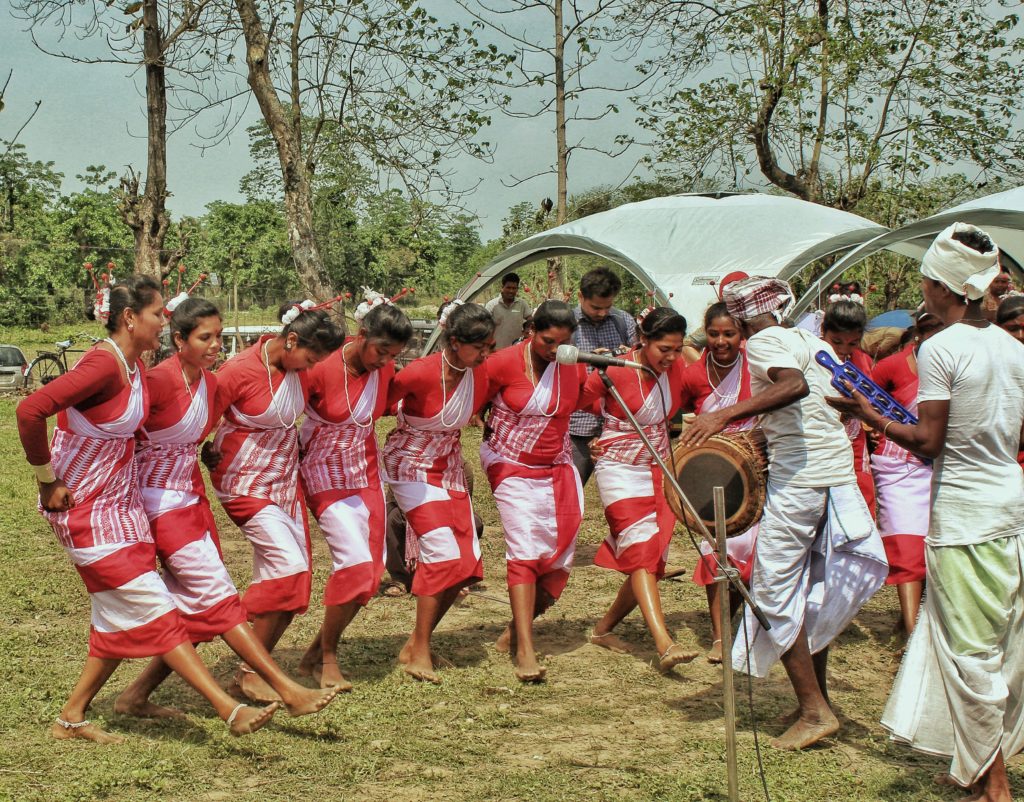
Jhumar Dance – Traditional Dance performed by tea garden inhabitats
The cultural program also included Jhumur performance by young girls which is a traditional dance mostly native to Tea Tribes. The folk dance is popular in Indian states of Assam, Jharkhand, Odisha & West Bengal along with Bangladesh. The steps are performed with rhythmic sounds of musical instruments played by male members of the group.
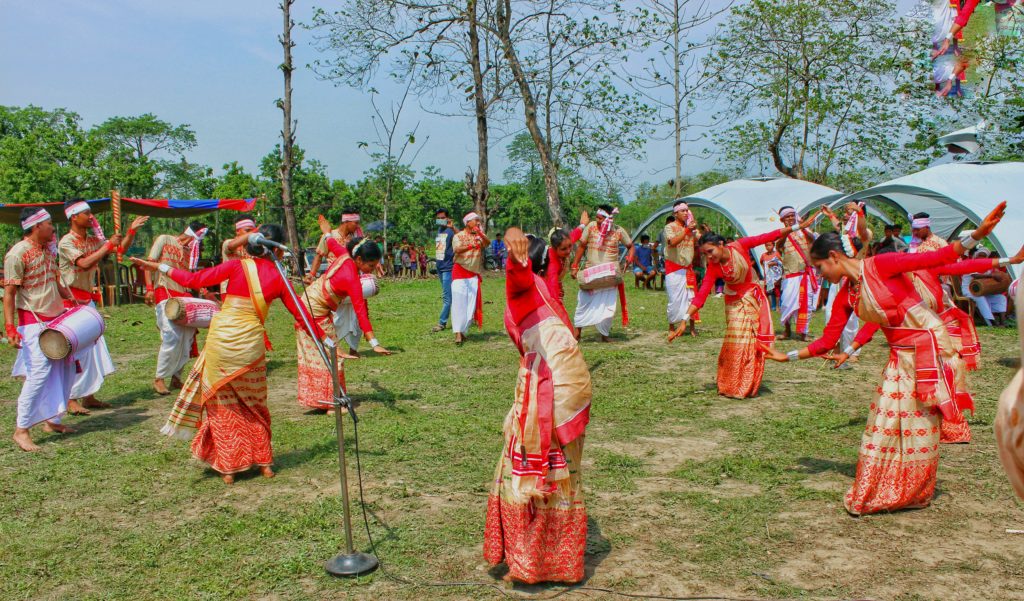
Traditional Bihu Dance
A cultural festival organized in Assam can never be complete without a soulful Bihu performance. The graceful dance movement syncs beautifully with the rhythmic beats of Assamese folklore and instruments, as the girls sing one by one and men play the instruments.
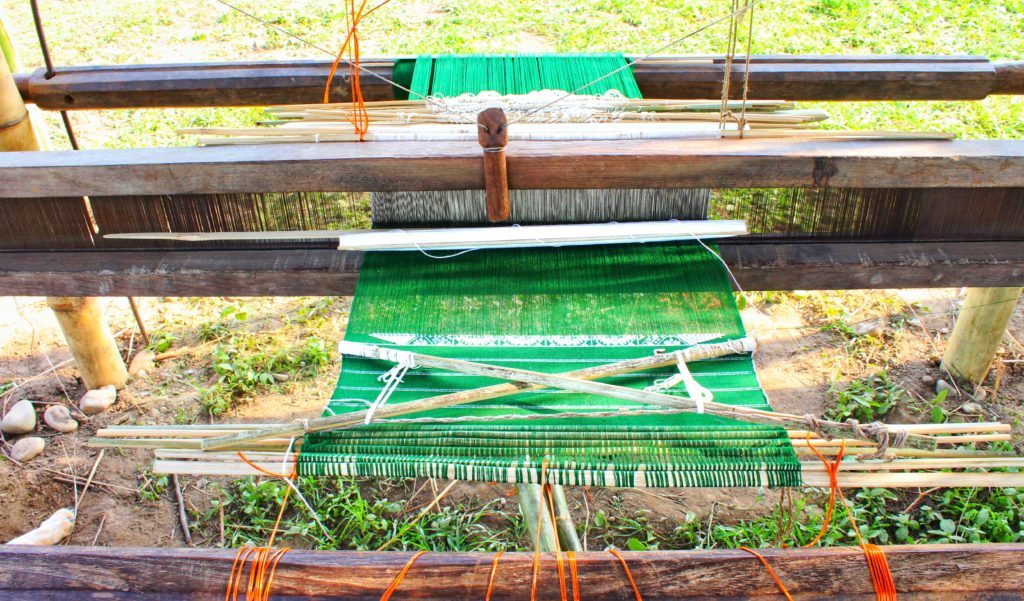
Weaving machine for Handlooms
Handwoven Handlooms
The Bodo handlooms represent a part of their vivid and colourful culture. The handlooms are weaved with a lot of intricate detailing by women in the traditional weaving machine called “Taat”. As the needle moves from one side to the other, it weaves the threads together to create beautiful pieces of cloth.
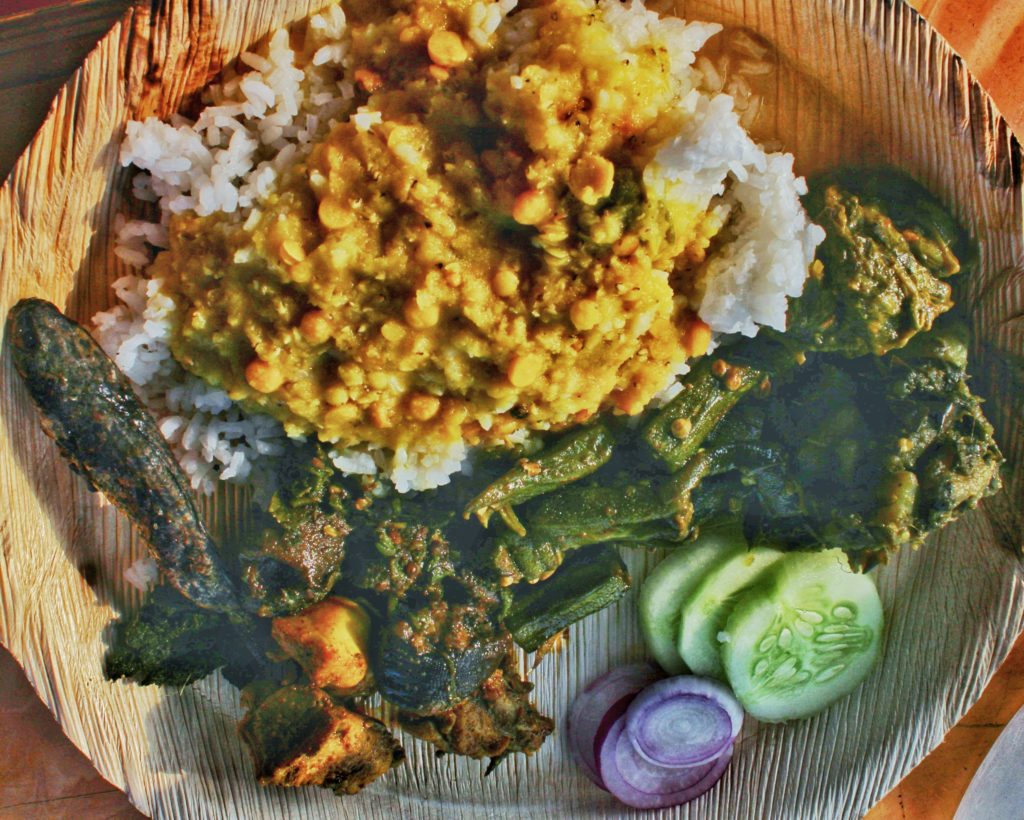
Some traditional delicacies – Fermented fish, Pork and traditional leafy vegetable
Ethnic Delicacies
Exploring a place and its culture through the ethnic cuisine or food items makes everything a little more memorable and beautiful. There was so much traditional Bodo food in one platter that included snails, chicken made in rice-powder curry, Boiled & fried silkworms, dry pork, pork made with curry, traditional green leafy vegetable, fermented fish etc.
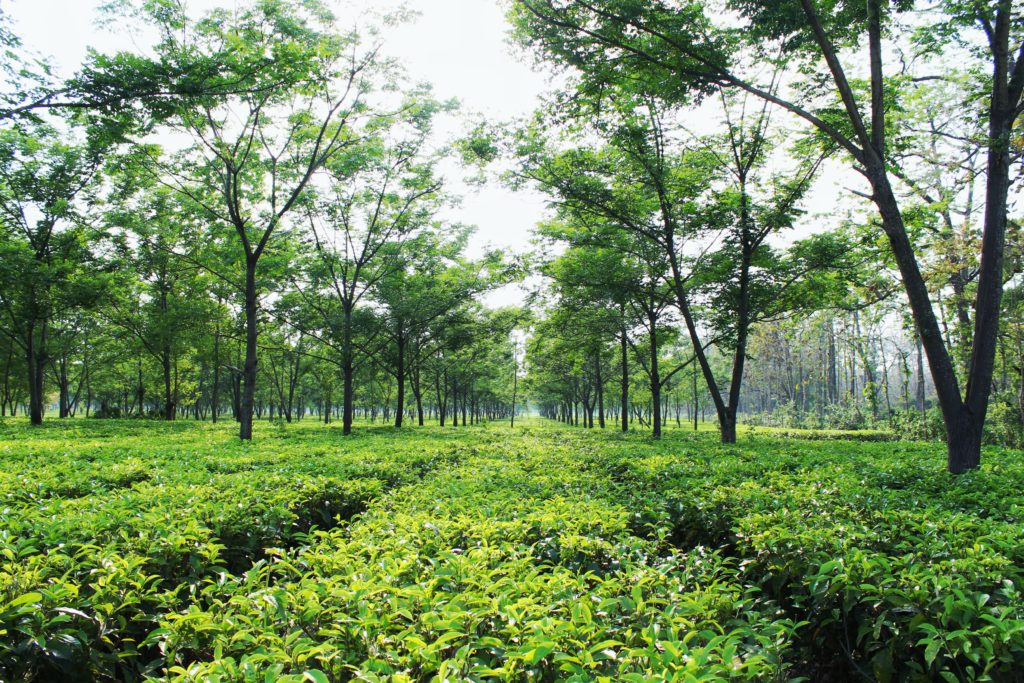
Gorgeous Tea Gardens of Manas National Park
Exploring Manas National Park
Nature has its own ways to capture your into its charm, the UNESCO Heritage Site is no less with so much to explore. It is a parallel universe aside from the real world, in middle of the dense jungle, where technology plays no role. There are so many things to do in Manas National Park even without the Spring Festival.
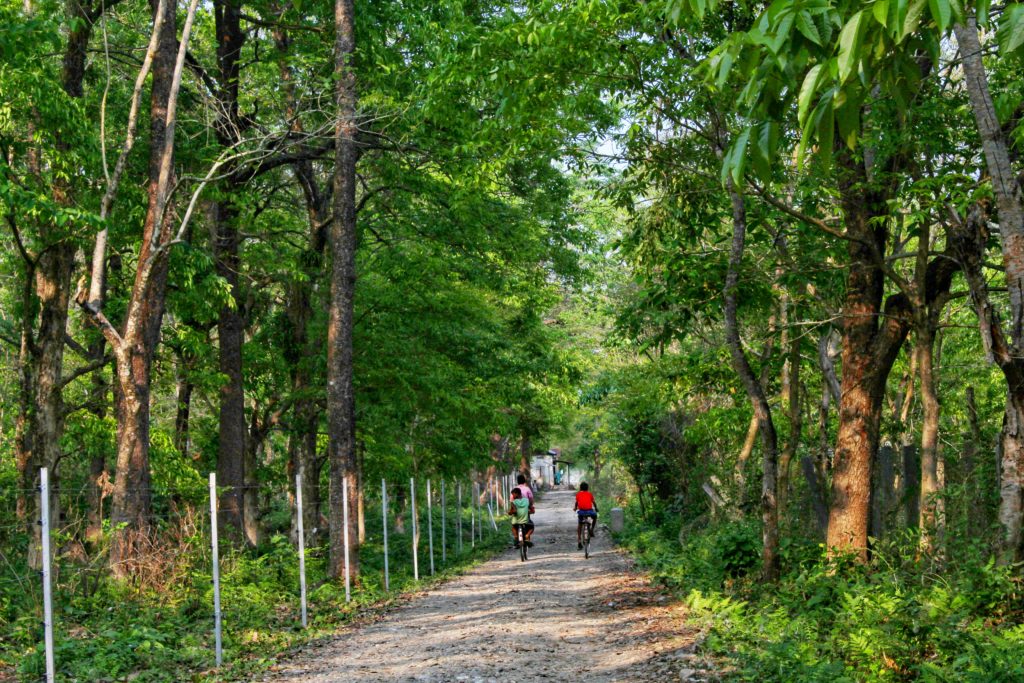
Into the wilderness
Take a cycle ride through tea estates and villages
Drive around the villages and witness the expanse of tea estates, settlements and delve deeper into the Bodo culture. There is nothing like exploring the remote places and knowing more about a culture.
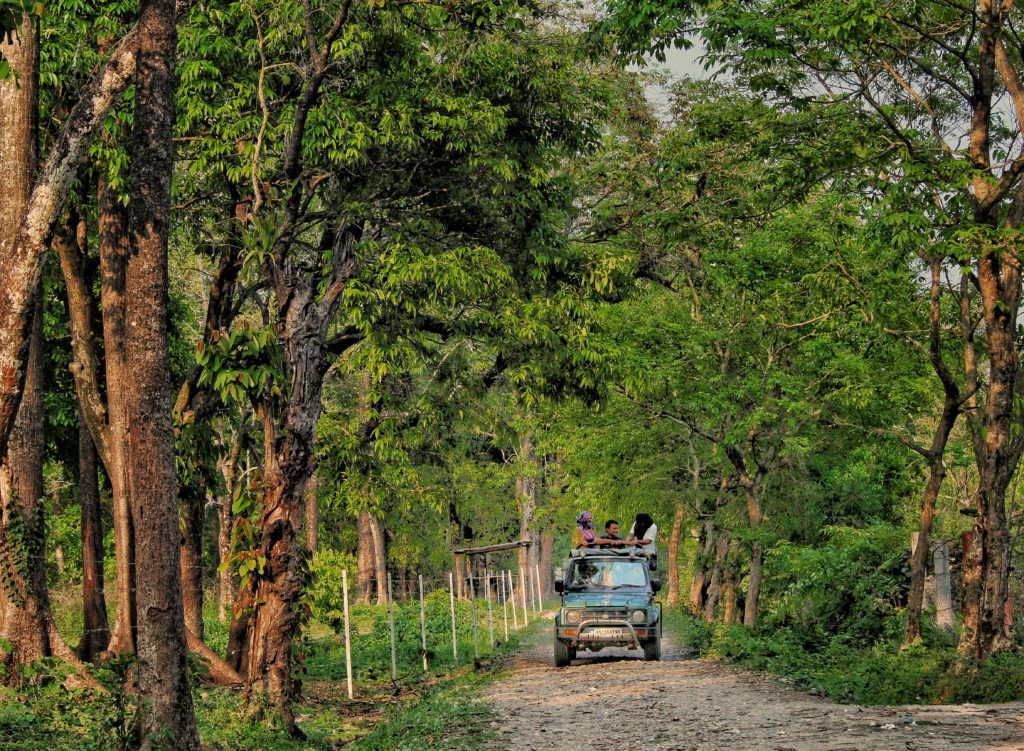
Safari and wildlife
Go for a wildlife Safari
Manas National Park is not exactly an offbeat destination but not even a place that is frequented by many tourists and travellers. As you get into the jungles on a safari ride, be prepared to witness Elephants in their natural habits, Rhinoceros, Deer and many other animals.
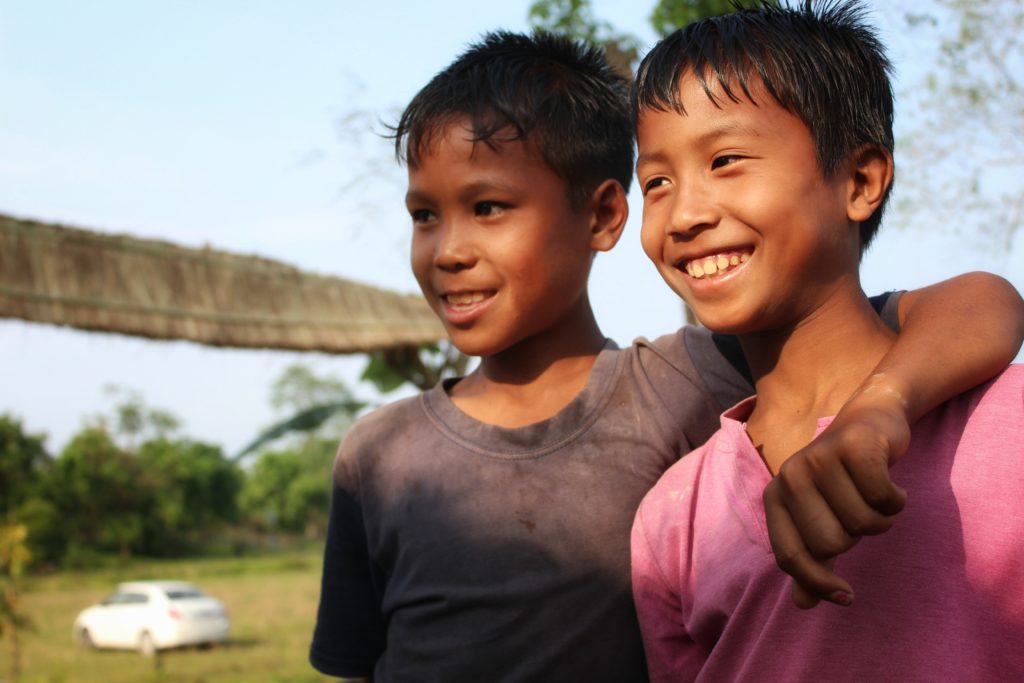
The innocence in their eyes
Go Rafting
Rafting through the almost stagnant river with very mild current and witnessing a number of birds on its way is indeed a beautiful experience. Rafting and safari both are organized by many resorts within the National Park.
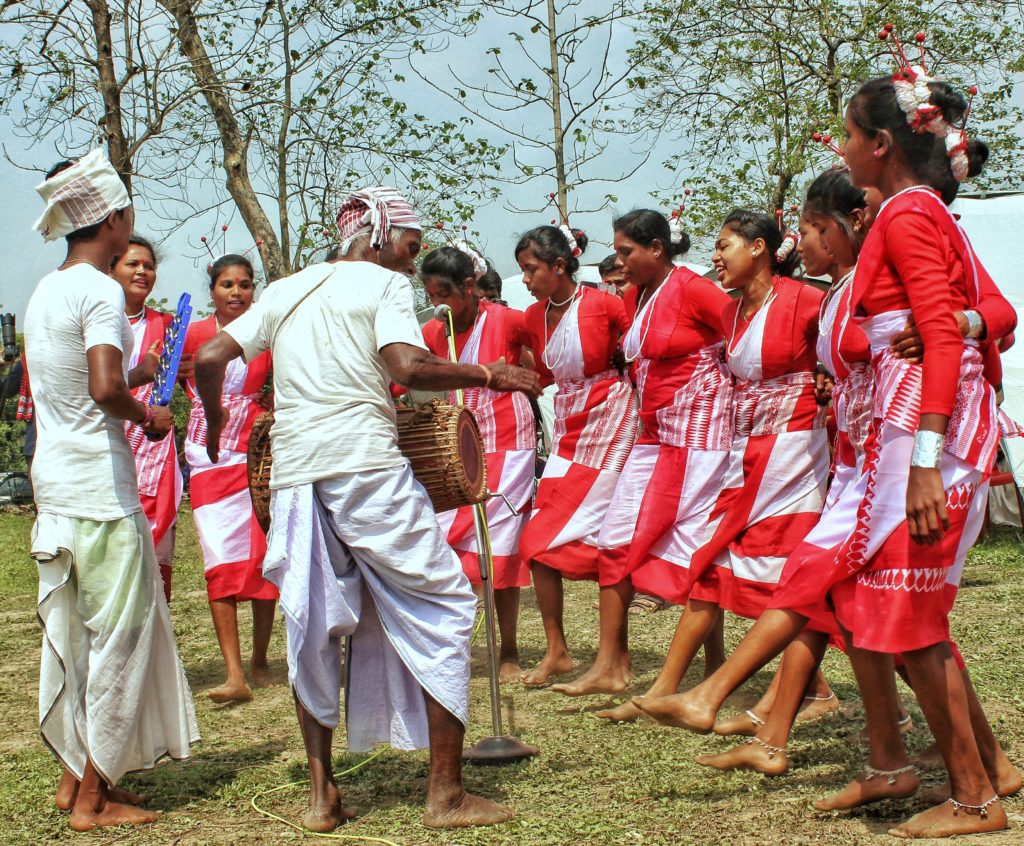
Jhumar Dance
How to Reach Manas National Park
The closest Airport to reach the park is Guwahati Airport. One can opt to hire a cab from Guwahati to Manas National Park. Next alternative is to get down at Barpeta Road railway station, hire a taxi or cab to the National Park.
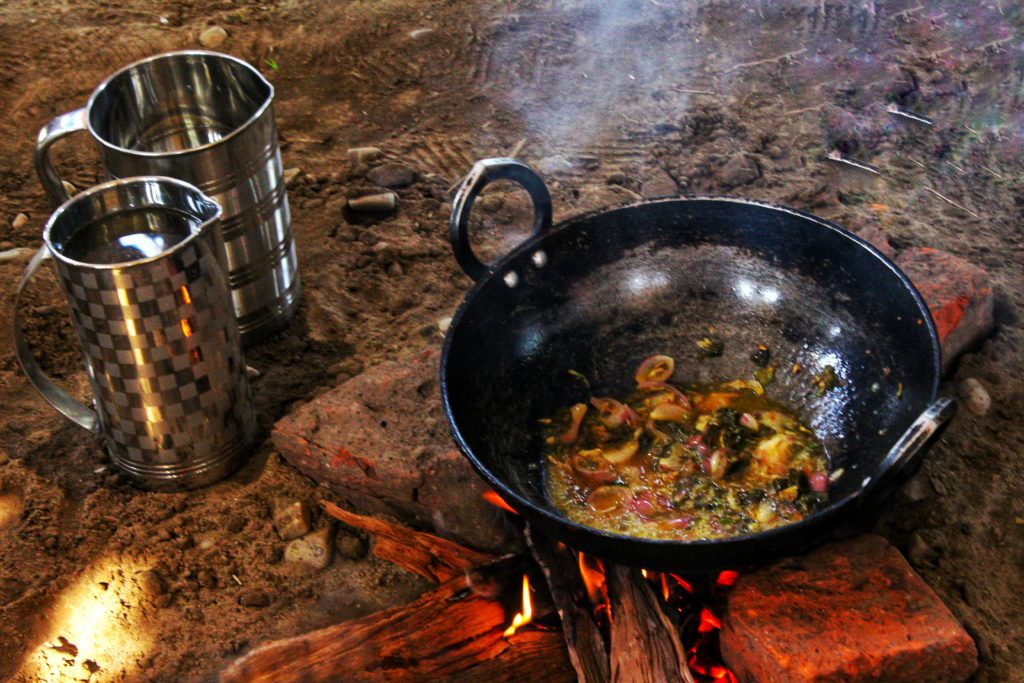
Ethnic delicacy in cooking by chef Gautam Mehrishi
Best Time to Visit Manas National Park
The best time to visit the National Park is mostly during the winter seasons. The park remains open from October to mostly May every year post which it is closed due to the monsoons.
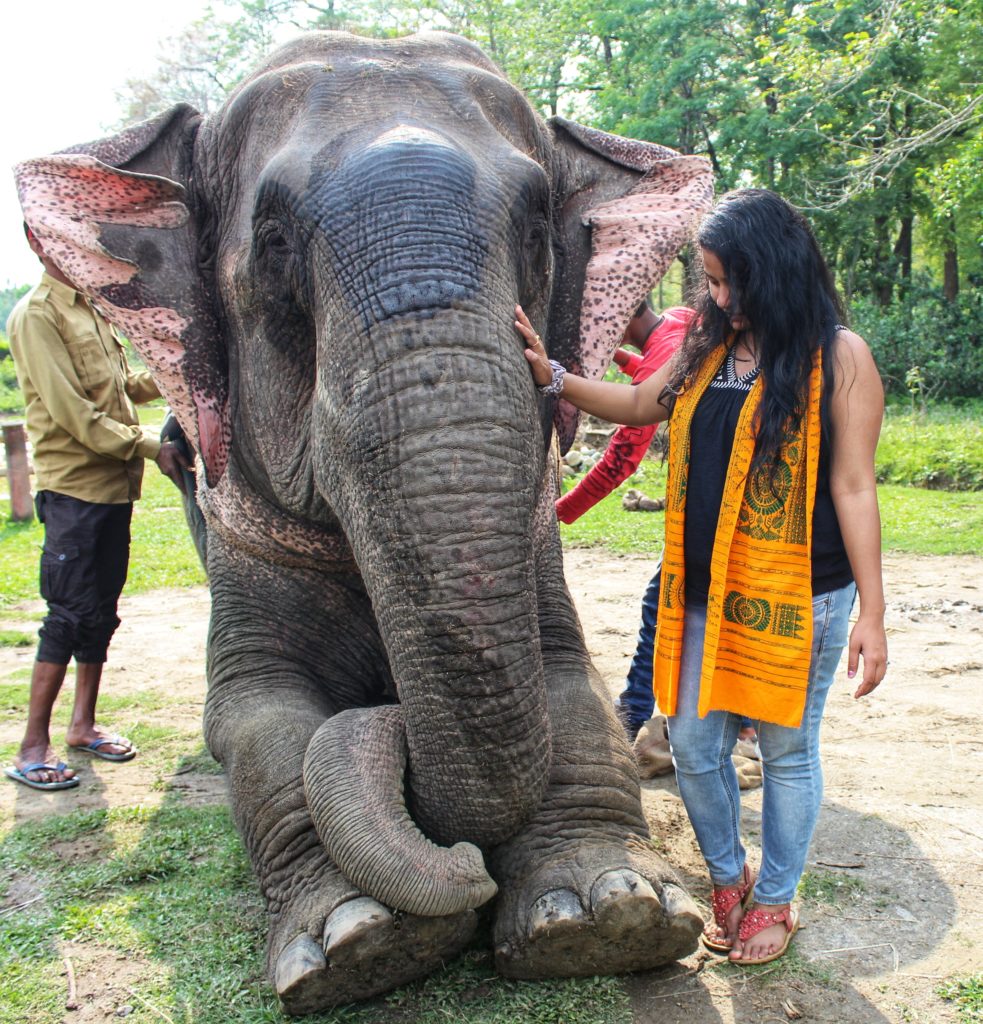
Until next time – It was a pleasure
PS: I joined Manas Spring Festival as one of the volunteers and it definitely was a beautiful experience meeting so many people. Thanks, Mitali J Dutta for the opportunity.

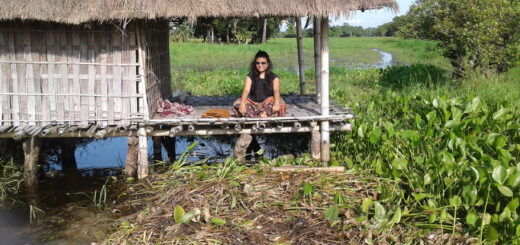
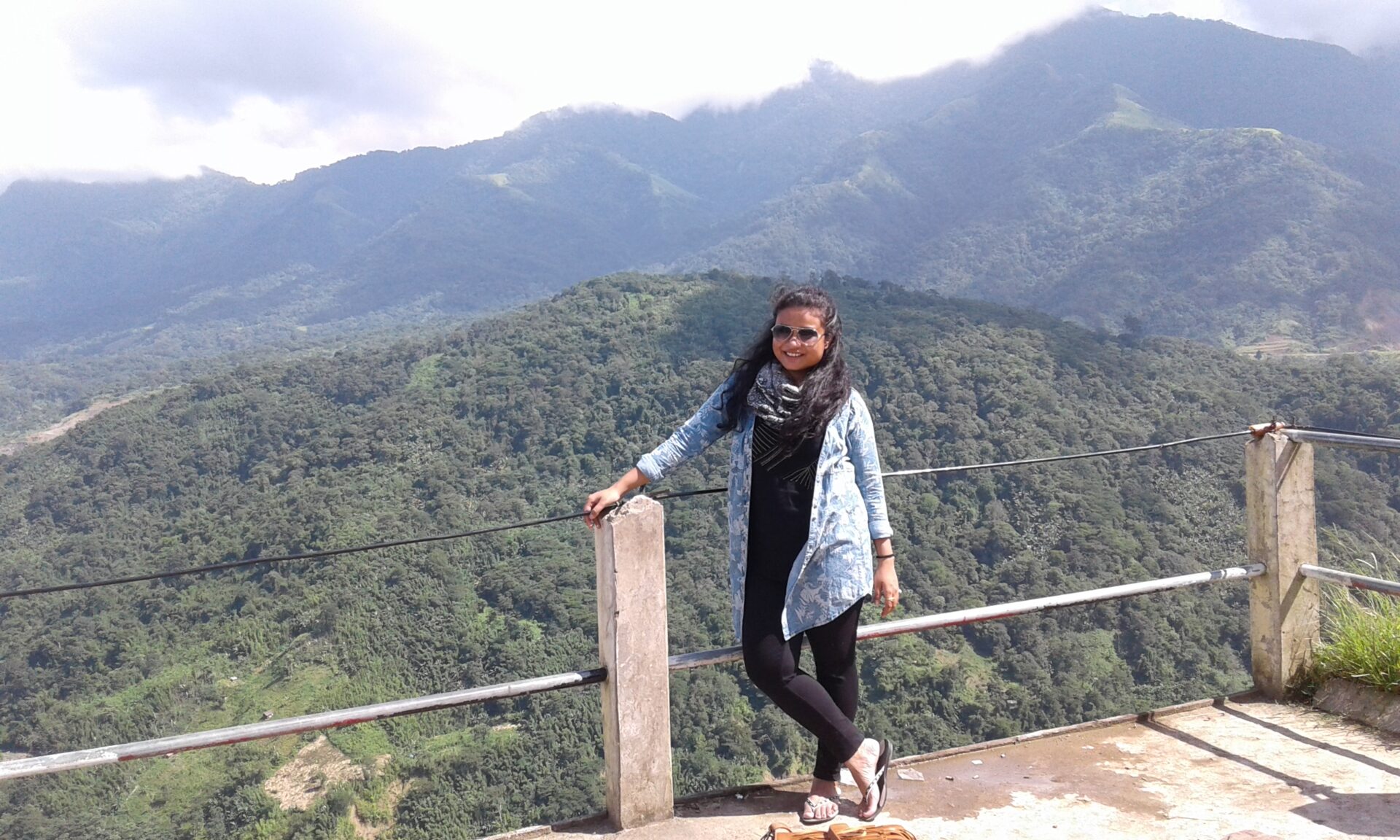
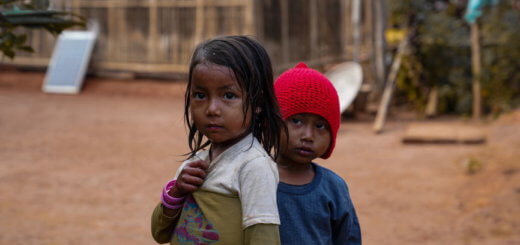

Beautiful pictures and very well written post, loved reading it!
Thanks a lot!! I am glad you liked it 🙂